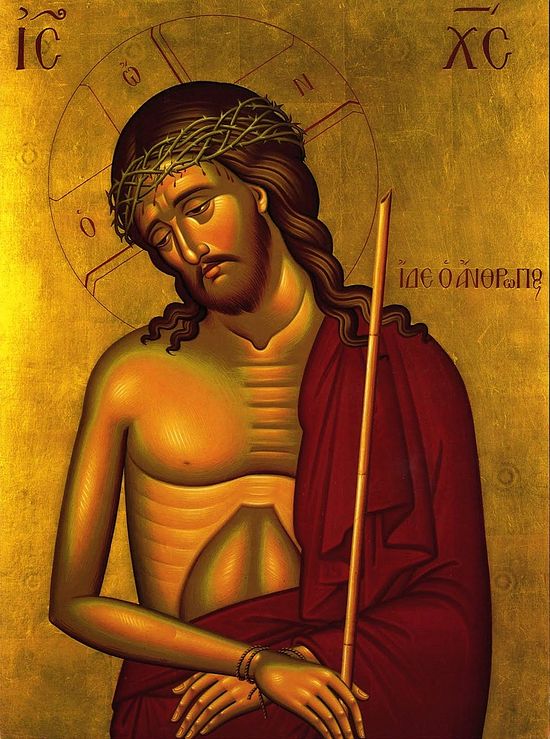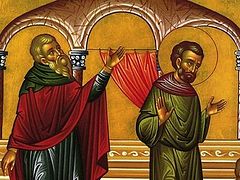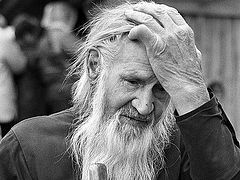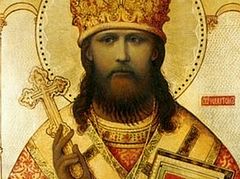Source: Orthodox Way of Life
March 21, 2016
This message is particularly important in this political season where tempers fly even over political rhetoric.
Saint Theophylact writes,
We should not take offense to anyone over things that do not harm us.
He wrote this commenting on a lesson Jesus taught His disciples when someone came to Peter and craftily asked if Jesus had paid the temple tax. (Matthew 17:24-27)
Jesus answered Peter, Of whom do the kings of the earth take custom or tribute? Of their own sons, or of strangers? Peter answers, Of strangers. Jesus continues, Then indeed sons are free.
What He was saying was that as the son of God, the King, He should not have to pay the temple tax.
But he continued saying that even though He shouldn't have to pay this tax, least He should offend them, He performs a miracle where the fish have coins in their mouth, and He tells Peter to use them and pay the tax.
Even though He did not owe the tax He thought it more important to make allowance for their misunderstanding and to not cause any offense.
Our lesson from this event, according to Blessed Theophylact, is that we must not cause unnecessary offense when others ask us to do something that will not cause us harm, even though we may not agree with or like it. They may not even be asking us to do something but merely offering their idea or assessment of a situation. We don't have to answer in a way that will only raise tempers.
Think about all the times you have gotten angry, upsetting yourself, causing stress in yourself because of actions or words of others. How did that feel? Then think of the times when you responded and caused the same reaction in the body of someone else. How did that make them feel? Always keep in mind the well being of others. Don't be always insistent on your view or your way of doing things. Don't get upset when others do things differently than how you would do them. If you follow this advice, you will find a growing peace within and then you will find you are more able to interact in helpful ways where all grow in Christ.
We make ours and others lives stressful and difficult by insisting that everyone behave according to our expectations, our rules and resist going along with others when there is no harm to us.
Learning to love one another requires that we learn to be very careful about what we object to in what others ask of or say to us. If we are careful we can make this world one that is more peaceful with less stress. Remember how Jesus did not insist on His right not to be taxed, but chose instead to pay the tax so He would not create an issue.
Respond always with kindness and love with Christ ever in your mind.




